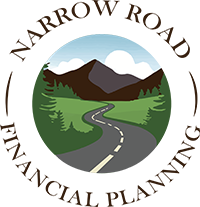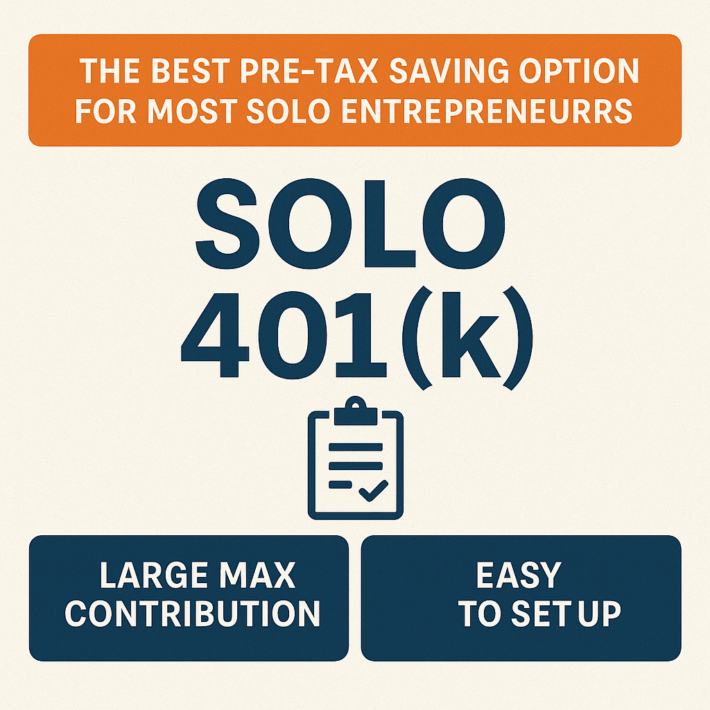How Retirees Can Still Build Wealth After Retirement

Retirement Isn’t the Finish Line
For many people, the word “retirement” evokes images of slowing down, living off savings, and withdrawing from financial growth. But the truth is, retirement doesn’t have to mark the end of building wealth. In fact, with the right approach, retirees can continue growing their assets and leaving a meaningful legacy for their families.
Below are three high-level strategies that can make a real impact on a retiree’s financial picture, along with additional planning tips to maximize wealth for both yourself and future generations.
1. Stick to a Real Investment Strategy
Whatever your investing style—conservative, moderate, or aggressive—the most important thing is that you have a strategy. Too often, retirees go into retirement without a clear plan and rely instead on market headlines, opinions from friends, or gut instinct to guide their decisions.
This reactive style leads to emotional decision-making and poor results. Successful investors in retirement stick to a disciplined, long-term investment plan. That could include a mix of dividend-producing stocks, growth-oriented mutual funds, or a diversified allocation that fits your risk tolerance and income needs.
The right strategy provides consistency, confidence, and most importantly, peace of mind. If you’re unsure where to start, work with a fiduciary advisor who can help you clarify your risk profile and build a portfolio that supports your goals.
2. Leverage Annual Tax Planning Opportunities
Tax planning is one of the most overlooked areas of post-retirement financial growth. While many retirees focus on investment returns, it’s often what you keep after taxes that matters most. Annual tax planning strategies can help you reduce lifetime tax liability and extend the life of your assets.
Some of the most effective tools include:
- Roth Conversions – Converting traditional IRA dollars to Roth accounts over time can create tax-free growth for the future and tax-free distributions for your heirs. Done strategically, Roth conversions can minimize your required minimum distributions (RMDs) later in life.
- Qualified Charitable Distributions (QCDs) – If you’re over age 70½, you can donate directly from your IRA to a qualified charity. This counts toward your RMD and reduces taxable income.
- Income Smoothing – By spreading out taxable income over low-income years (such as early retirement), you may stay in a lower tax bracket longer.
- Tax Credit Awareness – Many retirees miss out on lesser-known tax credits or deductions because they assume tax planning stops at age 65. It doesn’t.
These strategies are highly individual and depend on your income sources, age, healthcare expenses, and overall financial plan. But in many cases, proactive tax planning adds up to hundreds of thousands in additional net worth over the course of retirement.
3. Don’t Let Fear Drive Financial Decisions
Fear is a powerful force, and it often leads retirees to make overly conservative or reactionary choices. Whether it’s selling out of the market during a downturn or hoarding cash due to economic uncertainty, fear-based decisions typically undermine long-term success.
Instead, retirees need a comprehensive plan to lean on. Beyond investments and taxes, this plan should include:
- Estate Planning
- Long-Term Care Planning
- Education Planning (for grandchildren or loved ones)
- Withdrawal Strategy
- Cash Flow Forecasting
When you have a detailed financial roadmap, you don’t need to make decisions out of emotion. You can simply refer back to the plan, adjust if needed, and stay the course. Confidence comes from clarity.
Planning with Heirs in Mind: Roth Accounts and Wealth Transfer
If building generational wealth is a goal, you need to think about how your assets will be taxed when passed on. Roth IRAs are one of the most powerful tools in legacy planning. They grow tax-free and distribute to beneficiaries income tax-free. They are also not subject to required minimum distributions during your lifetime.
Converting portions of your traditional IRA into Roth accounts during low-income years in retirement can set your heirs up for tremendous financial benefit—especially if they inherit in high tax brackets or live in high-tax states.
Additional ways to plan with heirs in mind include:
- Updating Beneficiary Designations regularly on all accounts
- Establishing a Trust for complex or large estates
- Transferring Appreciated Assets strategically, considering step-up in basis rules
Avoid the Most Common Mistake: Overspending Without a Plan
When it comes to retirement planning, most people fear a market crash or poor returns will ruin their future. But in reality, the #1 retirement destroyer is uncontrolled spending.
A structured withdrawal strategy and regular budgeting help ensure that your spending aligns with your long-term goals. Without a clear understanding of what you can spend, retirees often either:
- Overspend early and risk running out of money later, or
- Underspend and miss out on experiences they could have enjoyed.
The key is balance. Financial planning is not about deprivation, it’s about prioritization. A well-designed plan will help you enjoy your retirement today while still protecting tomorrow.
Talk to Your Family About Wealth Transfer (But Prepare First)
Conversations about money and legacy can be difficult, but they are essential. One of the best ways to avoid future family tension is to have honest, proactive discussions while you’re still able.
Before having those conversations:
- Finalize Your Estate Plan – Wills, powers of attorney, health directives, and trusts if applicable.
- Review All Beneficiaries – Ensure they match your intentions.
- Understand the Tax Implications of any assets you plan to transfer.
Once that foundation is in place, sit down with your family and explain the plan—not just the “what,” but the “why.”
Your wealth is more than money; it’s values, stories, and lessons. A good wealth transfer conversation communicates all of it.
Retirement as a New Beginning
Wealth-building doesn’t stop at retirement. In fact, retirement may be your greatest opportunity to refine your financial strategy, reduce taxes, and leave a lasting legacy.
With the right mix of disciplined investing, strategic tax planning, and clear communication with loved ones, you can not only protect your wealth but continue to grow it. The goal isn’t just to retire—it’s to retire well.
If you’re ready to take a more intentional approach to your post-retirement planning, don’t hesitate to reach out to a qualified financial advisor who can help you align your finances with your purpose.



